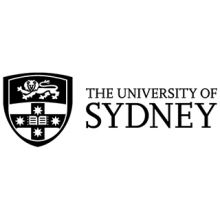Students should resist taking classes in wildly varied areas if they are struggling to master their core subjects, Australian research suggests.
A University of Sydney study has found that students with weighted average marks of 60 risk reducing their scores by as much as one-third if they choose “atypical” combinations of classes. But those with average marks over 69 are unlikely to suffer any adverse hit to their results by mixing up their subjects.
The research, presented at an engineering education conference in Brisbane, was based on an analysis of the marks of more than 21,000 engineering students. The findings reflect earlier studies suggesting that a highly diverse selection of secondary school subjects can hamper academically struggling students’ performance in subsequent engineering degrees.
“Although a unique combination of courses from distant disciplines can be enriching, there may be some students who might be better advised not to spread their bandwidth too widely,” co-author Petr Matous warned.
Fellow author David Lowe said the team could only speculate about the reasons. “We suspect that students who are more academically accomplished cope well when they study more broadly, because they’ve already got the foundations,” said Professor Lowe, associate dean of education at Sydney’s engineering faculty. “[But if less able] students try to study more broadly, they’re not spending time getting on top of that foundation and they do worse.”
Professor Lowe said the research had been conceived primarily to inform the faculty’s efforts to help students. While more data were needed before the team could publish its findings in a journal, he said the evidence was already “fairly compelling”.
“I would have no trouble in saying to [particular] students, we’ve got solid evidence that suggests that in your case, doing more diverse subjects is probably going to be damaging – and saying to someone else, in your case I think it would be helpful. Too often, we treat all our students as if they are the same. Different students cope in different ways.”
Professor Lowe said that acquiring broader capabilities could help graduates cope with complexity and challenge. “It helps join the dots together so you end up having a much greater degree of integration in your understanding. But if you’ve been struggling with technical elements of your learning, going off and studying ancient Greek is likely to make that harder.”
The team analysed all of the students’ subject combinations and quantified the degree to which each pair of units could be characterised as “mainstream” or unconventional. “By applying methods of network science to 10 years’ worth of students’ enrolment and performance data, we managed to better understand the patterns of subject choices,” said Dr Matous, adding that such data should be “better utilised” by universities.
Lead author Sooraj Sekhar, who undertook the research as a master’s student in complex systems, said he had been motivated by his personal experience. “I like taking a variety of units from different schools and departments because it is interesting to see the differences in perspectives and subject matters,” he said.
Register to continue
Why register?
- Registration is free and only takes a moment
- Once registered, you can read 3 articles a month
- Sign up for our newsletter
Subscribe
Or subscribe for unlimited access to:
- Unlimited access to news, views, insights & reviews
- Digital editions
- Digital access to THE’s university and college rankings analysis
Already registered or a current subscriber?










